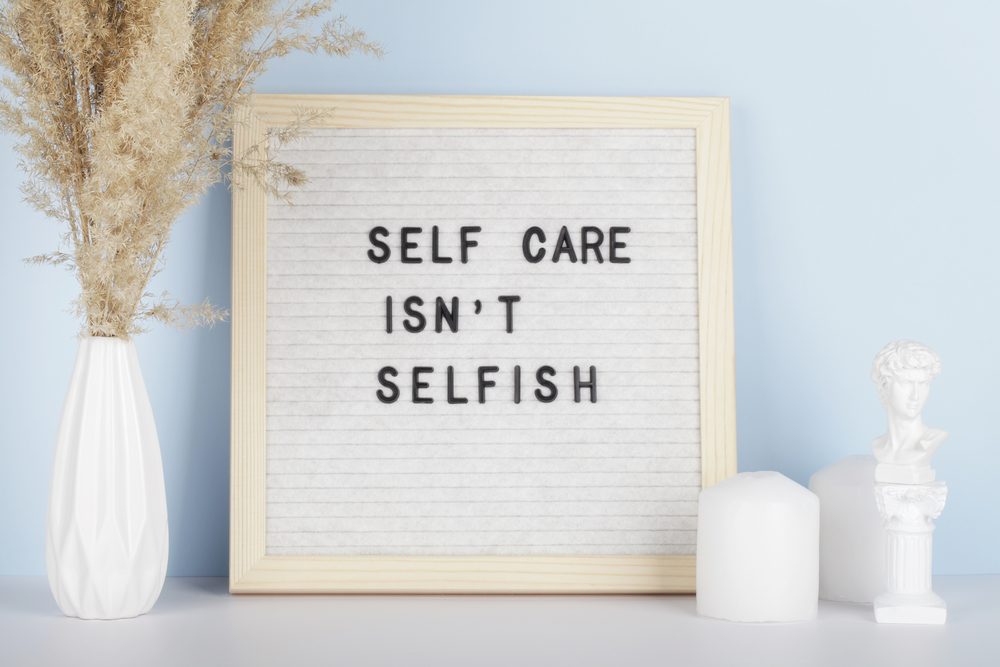Being a caregiver can take a tremendous toll on a person’s physical, mental, and emotional health. In a 2020 study by the National Alliance for Caregiving and AARP, 21% of family caregivers reported their own health as “fair to poor.” The number is probably higher because caregivers often feel guilty about admitting they are having problems. They are so busy helping a loved one while also managing their own personal and work life, that they don’t have time to take care of themselves. This can leave them vulnerable to health issues. If you’re a caregiver, it’s crucial to make time for self-care for your sake and your loved ones.
Signs of caregiver stress
The stress of caregiving can manifest itself in various ailments. Common signs include:
- Anxiety
- Depression
- Irritability
- Lethargy
- Sleeping problems
- Headaches
- Stomach upset
- High blood pressure
- Aches and pains
- Weakened immune system
Self-care tips for caregivers
If you or someone you know is experiencing stress and/or health problems, there are steps that can help cope with it more effectively. Here are a few recommendations:
- Ask for help. Don’t assume that others know you want assistance and what they should do to help you. Be specific about your needs. Give them a few options so they have more opportunities to assist you depending on their availability.
- Accept help. It can be hard to admit you need help but remember that the people who care about you want to be there for you. Learn to say yes.
- Research public/private services. The Department of Aging in your region can provide useful information on resources that may be available, including assistance with transportation, meals, counseling, in-home care, financial aid, and other services. You may also benefit from programs that provide respite care, adult daycare, and senior centers.
- Do activities you enjoy and/or find relaxing. Hobbies like gardening, creating art, reading, writing, listening/playing music, sewing, and other pursuits can give you a much-needed break so you have the energy and focus to return to your caregiving tasks.
- Exercise. Any kind of physical activity can help you deal with stress as well as benefit your overall health.
- Meditate or do breathing exercises. Research has shown these to be effective at relieving stress.
- Get more sleep. Lack of sleep can affect your mood, concentration, and general health. Strive to set aside adequate time for sleep and try to relax before you go to bed.
- Eat a healthy diet. Fast food and a high-carb diet can lead to fatigue, increased inflammation, and higher cortisol levels. On the other hand, certain healthy foods can help reduce stress and anxiety.
- Keep up with medical appointments. Don’t ignore regular check-ups and go to the doctor if you aren’t feeling well.
- Join a support group. Meeting others in your situation can be a source of support and advice. Thanks to Covid, it’s much easier to find online groups if you can’t get away.
- Spend time with friends and family. It’s important to maintain social ties. Caregiving can be lonely and isolating, which makes it harder to deal with stress.
Caregivers often experience guilt when they take time for themselves and get away from their caregiving duties. However, taking a break can rejuvenize you so you go back to your responsibilities with more energy, a better mood, and less stress. It also helps keep you healthy, enabling you to continue to assist your loved one. If you are feeling overwhelmed or ill, both you and your loved one suffer, so practice self-care for everyone’s benefit.




